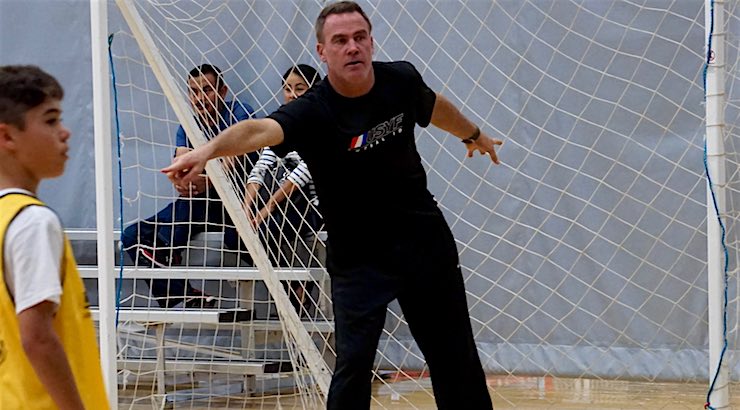Sean Bowers, Former Captain of U.S. National Futsal Team on Futsal Today & What National Scouts Look For
The benefits of playing futsal for elite youth soccer players is not in question. Everyone agrees that Futsal helps increase technical ability, provides enormous touches on the ball and is great for developing the mental side of soccer — and, is just a lot of fun. Imagine soccer with incredibly fast action, a lot of touches on the ball and lots of goal — and then take the game out of the heat into a cool basketball court and you have Futsal. Brazil’s Falcao may be the world’s greatest Futsal player today, but Pele, Ronaldo and Messi are just a few of the many famous soccer pros who have also played futsal. With the increase in popularity of Futsal, more and more kids are playing this great game which is the only indoor game sanctioned by FIFA.
Related article: Why Should Youth Soccer Players Play Futsal?
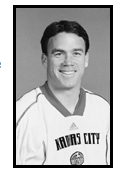 Across the country and especially in the Southern California area, the game of Futsal is synonymous with Sean Bowers who captained the U.S. National Futsal Team during his playing days from 1996 to the 2004 FIFA Futsal World Cup.
Across the country and especially in the Southern California area, the game of Futsal is synonymous with Sean Bowers who captained the U.S. National Futsal Team during his playing days from 1996 to the 2004 FIFA Futsal World Cup.
Bowers is a passionate leader in the futsal world and believes in the benefits of Futsal training for youth soccer players. As a former pro soccer and futsal player, Bowers has the experience to know the impact playing Futsal has. The 1992 NPSL Rookie of the Year, Bowers was one of the first players selected during the inaugural MLS Super Draft in 1996. Bowers played defense for the MLS Kansas City Wizards and also played indoor arena soccer for the San Diego Sockers.
As the head soccer coach for Miramar College‘s Women’s Soccer Team for the last 9 years, the youth soccer coach for Arsenal GU17’s who are ranked top 30 in Nation, and the founder of 619 Futsal league with more than 2,000 of players in 2016, Bowers is a strong force in both the Futsal and youth soccer worlds. Bowers is also the Regional Director for U.S. Youth Futsal.
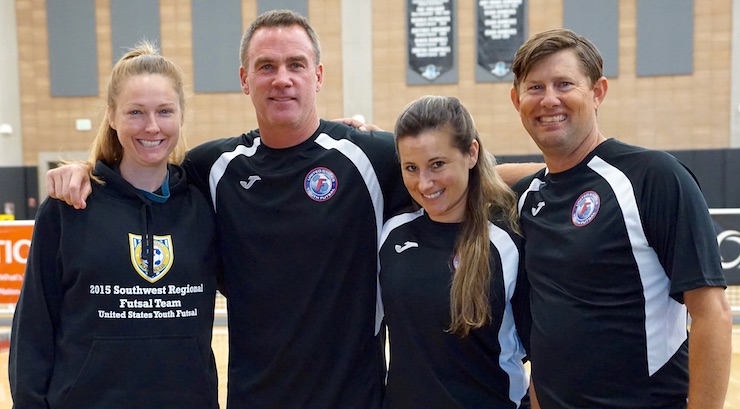
An outstanding defender in his pro soccer career earning four-time Defender of the Year, Bowers showed he still has what it takes when he played at the StubHub Center in the USA vs Mexico Legends match along side of Eric Wynalda, Chris Klein, Paul Caligiuri, Roy Lassiter and Jovan Kirovski. Even Coach Steve Sampson agreed that Bowers’ defending was a big reason that the USA was able to walk away with the victory.
Diane Scavuzzo: How many years have you played Futsal?
Sean Bowers: I have played futsal since 1996 when I was called up to the U.S. Men’s National Futsal Team to play in the FIFA Futsal World Cup in Spain — I ended my National team playing career after the 2004 FIFA Futsal World Cup in Taiwan.
Diane Scavuzzo: Your first experience with Futsal was being called up to the National Futsal Team. How did that feel?
Sean Bowers: It was an awesome experience but to be truthful I’m not sure why they called me up. I had no experience, I am 6’2″ and I was a very physical player that is not useful in the game of futsal.
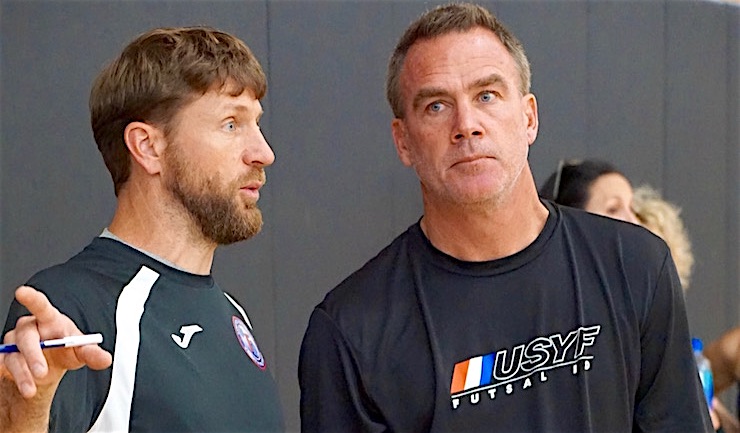 I remember the first time I played for coach Keith Tozer, he became my coach of the National team right after my first call up. Keith and I had a great relationship and he made me captain that spanned my playing days for the national team.
I remember the first time I played for coach Keith Tozer, he became my coach of the National team right after my first call up. Keith and I had a great relationship and he made me captain that spanned my playing days for the national team.
Diane Scavuzzo: When did you start 619 Futsal and why? How has it grown?
Sean Bowers: We started 619 Futsal in the winter of 2011 with just over 40 teams that competed in our first league. Now we are over 220 team strong with over 2,000 players who love the game of futsal.
Diane Scavuzzo: How has futsal changed since you became involved?
Sean Bowers: The game of futsal has drastically changed since I played from 1996-2004. In 1996 there was no slide tackling or even someone leaving their feet to block a shot. Now FIFA allows slide tackling so I feel during the time I played futsal that the rules changed so much.
Diane Scavuzzo: What do you think U.S. Youth Futsal needs to do to help Futsal be more successful in the USA?
Sean Bowers: US Youth Futsal has done a tremendous job creating programs for our youth to become better developed through futsal whether that’s through a league, a camp and even our futsal ID program. Since we have been involved with US Youth Futsal, futsal has become a wonderful tool benefiting many of our youth soccer players in the San Diego area.
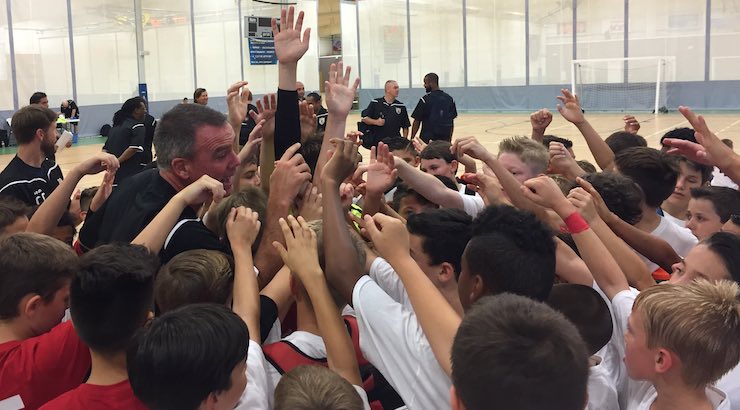
Diane Scavuzzo: What makes a Futsal coach successful?
Sean Bowers: Well, first of all they must know the game of futsal. Futsal is nothing like the outdoor game, — the terminology, the movement of the game, etc. although futsal greatly enhances a soccer player’s skill and movement which helps them when they do play outdoor soccer.
And, coaches must be a student of the game. The game of futsal is evolving with different formations and styles. A good futsal coach must understand not only the tactical side of the game, but also how to teach it to and communicate with our youth.
Diane Scavuzzo: When did you first start playing soccer?
Sean Bowers: I started playing soccer when I was 5 years old and my dad was my coach — he coached my recreational team here in San Diego. As a youth soccer player, I played club soccer for the La Jolla Nomads.
Diane Scavuzzo: What has coaching soccer and futsal taught you?
Sean Bowers: To be patient. I was not a patient person but coaching has allowed me to take a step back and to teach the game of soccer. I am a professor in Miramar College in Exercise Science, so my nature is to teach and develop players and students in and out of the classroom.
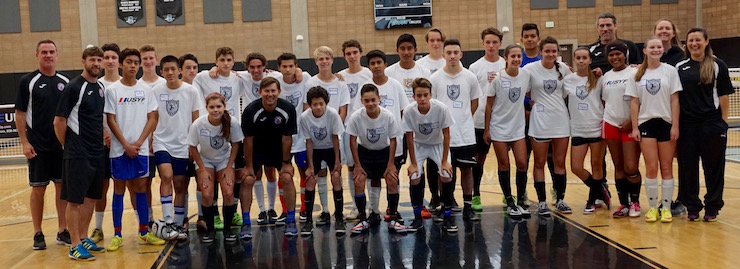
Diane Scavuzzo: What will the Futsal scouts look for at the National ID camp in Kansas City?
Sean Bowers: The 3 most important traits which I believe the US Youth Futsal Directors and Regional Coaches will look for at the National ID camp are:
1. Movement with and without the ball
2. Technical ability
3. Futsal IQ
You need to know the game of futsal. All the little things like how to trap the ball with the sole of the foot, or how to rotate and move building 3 in the back. At the National ID camp there is not a lot of time to try and understand the game. The coaches are looking for skill at this level and a player’s IQ will be what distinguishes them from the rest.
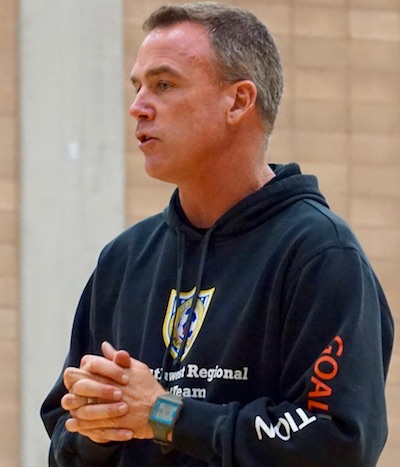 Diane Scavuzzo: As a soccer player, what do you consider to be your most difficult accomplishment?
Diane Scavuzzo: As a soccer player, what do you consider to be your most difficult accomplishment?
Sean Bowers: My most difficult accomplishment was probably being captain on the US Futsal National Team from 1996-2004 that spanned 3 gold cups and 2 FIFA world cups.
Being a leader is a very hard thing to do especially on the national team as we had so many players coming in and out of camp. Being a leader on a team meant for me putting the team first over myself and making sure each guy was ready to give their best.
Singing the national anthem while wearing a USA National team jersey and representing your country is by far my most difficult but treasured accomplishment.
Diane Scavuzzo: What was your biggest failure?
My biggest failure was probably not taking advice from a few people in Europe and taking a chance I had to go to Germany and play. I was asked to play for a team in Germany, that at the time was division 3, but ended up making its way to the Bundesliga in 2 years and I could have had a chance to be part of it. But I didn’t take the chance. Although I do not regret my decision I feel that would have been an awesome experience.
Diane Scavuzzo: Who is your favorite soccer team?
Sean Bowers: Liverpool.
Diane Scavuzzo: And, who is (or was) your greatest role model or mentor, either personally or as a coach?
Sean Bowers: My parents have been a huge reason for my success on and off the soccer/futsal field. Not only did they introduce me to soccer but they taught me so many things in life, and to be honest, they still do.
Related Articles: US Youth Futsal Expands I.D. Trials, Reflecting on Soccer: What I Know Now, U.S. Youth Futsal 2016 Southwest I.D. Camp, 619 Futsal 2016 Spring League

